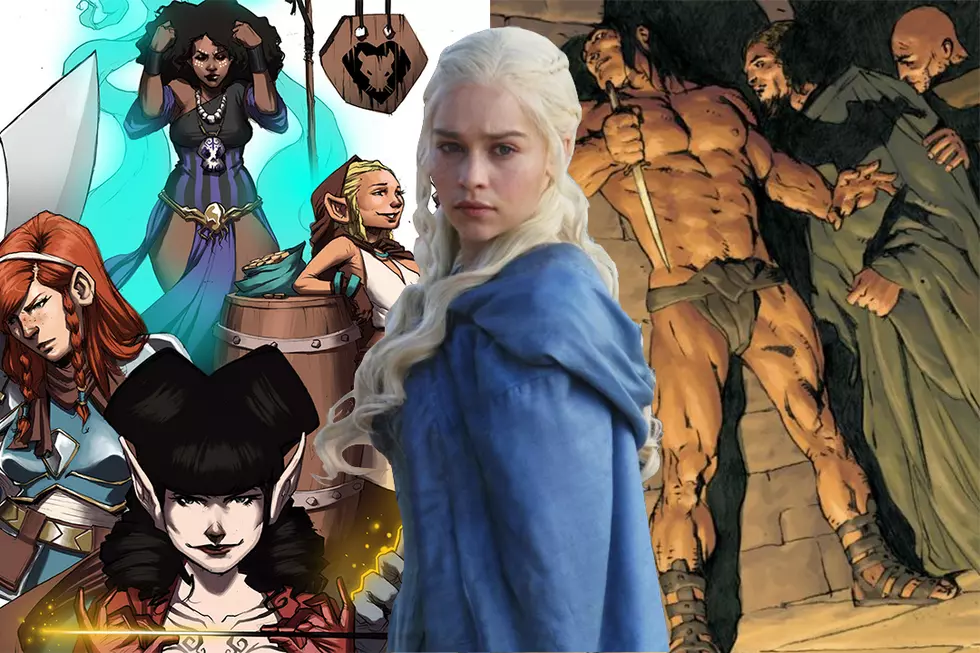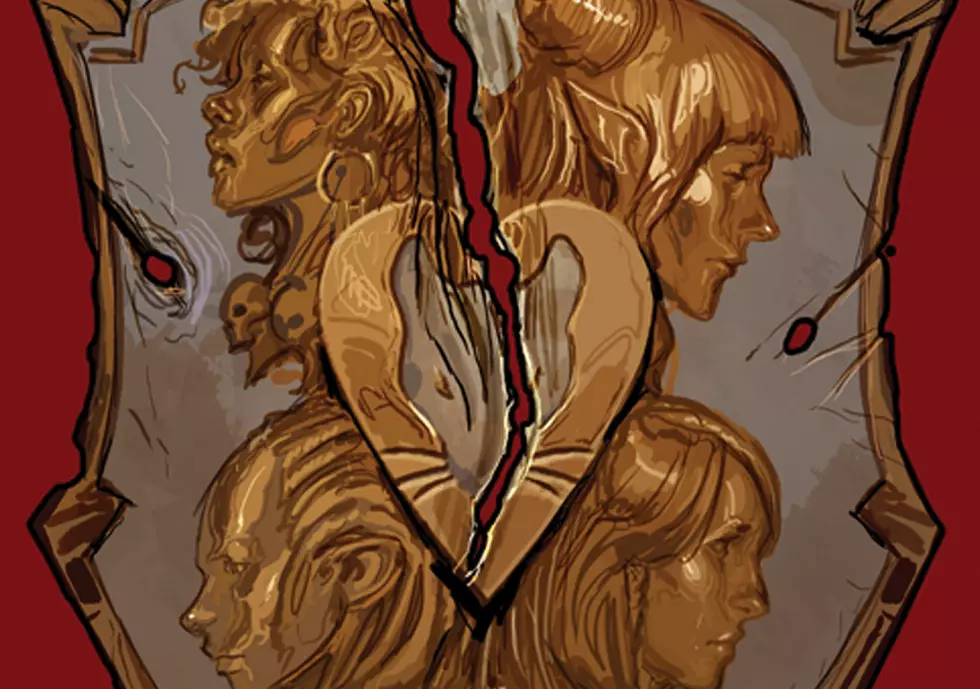
This Week, Comic Book News Hit Hard
A lot of times comic-book news is fairly predictable. A creative team might leave a book, but odds are they'll land somewhere else or start a creator-owned project. Titles get canceled or start up. A character might celebrate an anniversary or something offensive might slip into a book. These are all items we've become accustomed to seeing.
Occasionally, though, a story that impacts the livelihoods of a lot of people comes around, or something that could change your whole perception of a comics creator. Those can be hard to deal with, and this week had a couple of those stories.
First, there was the big news that DC Comics is moving its offices from New York, where it's been headquartered for going on a century, to Burbank, Calif. A lot of people were right to point out that could be good news for the company and its output as a whole. DC's digital output has been coming out of the Burbank office for some time now, and I'd say those comics are pretty easily the best ones currently coming out under the DC banner.
But this isn't a story just about the content of comic books. There are people involved, and that's where things get a lot tougher. When the announcement hit Tuesday, DC Entertainment President Diane Nelson's letter to employees was made public. It read, in part:
Everyone on the New York staff will be offered an opportunity to join their Burbank colleagues and those details will be shared with you individually, comprehensively and thoughtfully next week.
On the one hand, that's reassuring. The company's making a real effort to communicate with employees how this is going to affect them. On the other hand, the language of "offered an opportunity to join their Burbank colleagues" raises some red flags.
There's a difference between being offered an opportunity to do something and having an assurance that, if you make the effort to move across the country, you'll still have your job. The use of the term "opportunity" implies that there's got to be an alternative, too, and I worked at a newspaper long enough to think it may be code for buyouts or something like them. Something where staying or going remains a choice, but there's some added incentive to leave.
Obviously I'm reading between the lines here, and maybe the wording isn't as cautiously precise as I'm making it out to be. Maybe everyone from the New York office really will have a job waiting for them, but I have my doubts, and this story almost certainly goes beyond what Batman's going to be up to next year. Anyone acting like that's the only part of the news that matters should rethink it.
At the very least, this move is going to result in families being forced to make some really difficult decisions about whether a job at DC outranks a spouse's career, whether it's worth changing their kids' schools, and so on. That doesn't just affect the editors you don't like. It affects everyone.
Another of the week's stories involved a lot of touchy subjects: misogyny, convention harassment, online harassment, and what fans are to do when a creator they like is at the center of some serious allegations of unacceptable behavior.
Bleeding Cool ran a collection of tweets from artist Tess Fowler about a run-in with a well-known comics writer (whom she doesn't name, but others did) at San Diego Comic-Con a few years ago. It's a damning story of manipulation and verbal abuse, one that it seems would not benefit Fowler to make up. If anything, she'd be putting herself in the crosshairs for tons of further abuse.
But doubt or no doubt, Fowler's is a story that's next to impossible to verify, short of the man in question confirming her account. That makes it a really challenging story to report on in the strictest sense, and as a fan it's difficult to even wrap one's head around. What do you do with a situation like this?
You might say you'll stop buying the work of the creator at the center of it -- and some have. That's certainly a valid response, but it also is punitive toward other personnel --pencilers, inkers, letterers, editors -- who simply associate with that writer professionally. Not to mention that you might be depriving yourself of great comics.
This is a struggle throughout art, not just in comics; the old question of separating the art from the artist (or at least from a story of something that person did).
A while back on Tumblr, Darryl Ayo, a really smart critic, came up with a solid definition of "problematic":
An untalented artist who is a bigot isn’t really problematic. They’re just all around bad. A good artist who works their craft well, yet expresses harmful or hateful views: that’s a “problem.”
And that's the issue here, though this isn't a case of bigotry, per se. A talented writer, by some accounts, did something that victimized Tess Fowler. But airing that specific incident wasn't Fowler's key point in all this. What she expressed was the fact that this is common. Hers is just an example of something that sadly happens to women in comics with far too much regularity, and, as I noted, is often not discussed openly or in the media, because it's incredibly difficult to verify. There's a reason I'm not naming the writer in question here, and it's not really to protect him (though I am pretty wary of publishing unverified reports). It's because naming the creator makes the story about him. It becomes a tabloid piece about one person's troubling actions, and that's not the point.
The point is, taking one creator's books off your pull list won't solve the problem of misogyny in comics. Doing that could actually have unintended consequences that do the opposite of what you want (especially if that creator often collaborates with women, who need those sales to keep their careers going). Boycotts might make you feel better, but what's really going to make women in the comics world feel better is a sense of knowing their friends, peers and mentors in this scene have their backs. That people aren't trying to steer them toward the proverbial casting couch.
What it's really going to take is a culture change. A clear line in the sand that says such abuse at conventions is not OK and has never been OK, no matter how OK it may have once seemed. Everybody who believes that kind of behavior is wrong needs to keep saying it. The more it's reinforced, the more it will become the rule.
More From ComicsAlliance





![Kurtis J. Wiebe and Tess Fowler’s ‘Rat Queens’ Take a Critical Hit In Issue #15 [Interview]](http://townsquare.media/site/622/files/2016/03/rq-feat.jpg?w=980&q=75)



